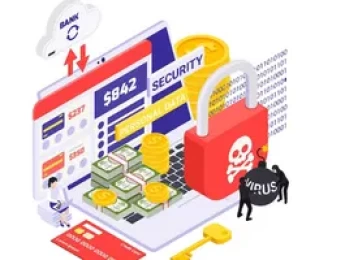Rural infrastructure is crucial to any rural community, as the entire function of the community will depend on infrastructure components such as the water supply, energy, and transport systems. If these systems are left undeveloped and unmanaged, they can greatly limit the community’s economic growth.
To develop rural infrastructure, it is vital for those involved to understand the process of planning and managing finances. Various methods can aid in planning and development, and strategies can help match the goals with an achievable budget. Plans for different systems should take into consideration the community's demands and the existing infrastructure.
Rural infrastructure development should also account for modern infrastructure standards primarily focused on sustainability. Ensuring sustainable infrastructure, such as renewable energy sources, will prevent pollution within the area and help maintain the natural landscapes. Furthermore, sustainable functions can be an ideal cost reduction method for functions and can be much simpler to maintain over time.
Upon completion of this course, participants will be able to:
- Understand the importance of rural infrastructure in supporting economic growth and development.
- Explore the concepts, principles, and standards of rural infrastructure development.
- Identify what internal and external factors may influence the development of rural infrastructure.
- Describe each process stage for infrastructure development and how they are intertwined with one another.
- Incorporate sustainable practices and functions within the infrastructure to increase reliability.
- Explore different infrastructure features and ideal improvement methods with minimal risk and downtime.
- Encourage collaboration and engagement with local stakeholders.
This course is designed for anyone involved with rural infrastructure and developing rural communities. It would be most beneficial for:
- Civil Engineers
- Project Managers
- Rural Planning Directors
- Communication and Engagement Managers
- Rural Surveyors
- Architects
- Operations Managers
This course uses a variety of adult learning styles to aid full understanding and comprehension. Participants will review real-world examples of infrastructure development plans to highlight key improvements and sustainable features.
To ensure a full understanding of the taught content, the participants will participate in various learning methods, including presentations, discussions, and individual and group practical activities. This combination of methods will promote skill development and ensure an in-depth understanding of the taught content.
Day 5 of each course is reserved for a Q&A session, which may occur off-site. For 10-day courses, this also applies to day 10
Section 1: Introduction to Rural Infrastructure
- Defining what rural infrastructure is, its necessity and importance within rural communities.
- Identifying what structural features and functions are a part of the infrastructure.
- Examining the history of rural infrastructure and how development and how it may no longer meet modern demands.
- Utilising infrastructure development as a tool for social and economic growth within a community.
Section 2: Planning and Financing
- Analysing existing infrastructure and how this meets community demands.
- Using various methods of innovative planning to explore different possibilities for development.
- Prioritising infrastructures based on demand and utilisation by the community.
- Exploring financing options and models for infrastructure projects.
- Setting an effective budget by managing resources, work required, time and more.
Section 3: Rural Transport Infrastructure
- Evaluating existing transport services and how these meet current community needs.
- Aligning transport infrastructure with general infrastructure to ensure complete accessibility to all.
- Recognise and navigate challenges faced by transport services based on infrastructure.
- Implement different strategies to meet transport demands and connect to outside towns or cities.
- Developing infrastructure while prioritising accessibility within the community.
Section 4: Water and Communication
- The importance of ensuring a clean and fresh water supply.
- Understanding the consequences of poor water management on individuals and businesses.
- Analysing water samples and providing regular maintenance to water supply systems.
- Assessing digital connectivity and incorporating the necessary structures to improve connectivity.
- Matching rural communities' connectivity to larger towns to remove technological disadvantage.
Section 5: Sustainable Energy and Inclusive Development
- Environmental considerations of rural development and potential negative impacts.
- Utilising sustainable energy methods to reduce pollution and emissions.
- Balancing sustainable energy and meeting community demands.
- Engaging with local stakeholders and encouraging community participation.
Upon successful completion of this training course, delegates will be awarded a Holistique Training Certificate of Completion. For those who attend and complete the online training course, a Holistique Training e-Certificate will be provided.
Holistique Training Certificates are accredited by the British Assessment Council (BAC) and The CPD Certification Service (CPD), and are certified under ISO 9001, ISO 21001, and ISO 29993 standards.
CPD credits for this course are granted by our Certificates and will be reflected on the Holistique Training Certificate of Completion. In accordance with the standards of The CPD Certification Service, one CPD credit is awarded per hour of course attendance. A maximum of 50 CPD credits can be claimed for any single course we currently offer.
- Course Code IND06-104
- Course Format Classroom, Online,
- Duration 5 days













